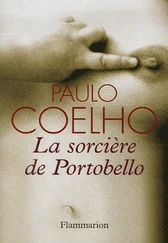Paulo Coelho - Adultery
Здесь есть возможность читать онлайн «Paulo Coelho - Adultery» весь текст электронной книги совершенно бесплатно (целиком полную версию без сокращений). В некоторых случаях можно слушать аудио, скачать через торрент в формате fb2 и присутствует краткое содержание. Год выпуска: 2014, ISBN: 2014, Издательство: Knopf Doubleday Publishing Group, Жанр: Старинная литература, на английском языке. Описание произведения, (предисловие) а так же отзывы посетителей доступны на портале библиотеки ЛибКат.
- Название:Adultery
- Автор:
- Издательство:Knopf Doubleday Publishing Group
- Жанр:
- Год:2014
- ISBN:978-1-101-87409-7
- Рейтинг книги:2 / 5. Голосов: 2
-
Избранное:Добавить в избранное
- Отзывы:
-
Ваша оценка:
- 40
- 1
- 2
- 3
- 4
- 5
Adultery: краткое содержание, описание и аннотация
Предлагаем к чтению аннотацию, описание, краткое содержание или предисловие (зависит от того, что написал сам автор книги «Adultery»). Если вы не нашли необходимую информацию о книге — напишите в комментариях, мы постараемся отыскать её.
Adultery — читать онлайн бесплатно полную книгу (весь текст) целиком
Ниже представлен текст книги, разбитый по страницам. Система сохранения места последней прочитанной страницы, позволяет с удобством читать онлайн бесплатно книгу «Adultery», без необходимости каждый раз заново искать на чём Вы остановились. Поставьте закладку, и сможете в любой момент перейти на страницу, на которой закончили чтение.
Интервал:
Закладка:
And because of that, I must put that witch in jail, even if my soul lingers in purgatory for centuries.
I must ? Where did that come from? I’m tired, so tired, and I can’t sleep.
“Married Women More Likely to Suffer from Depression than Single Women,” claimed an article published in today’s newspaper.
I didn’t read it. But this year is turning out to be very, very strange.
When I was a teenager, everything in my life went exactly as I planned. I was happy … but now something has happened.
It’s like a virus has infected the computer. The destruction has begun, slow but relentless. Everything is slowing down. Some large programs now require a lot of memory to open. Certain files—photos, documents—have disappeared without a trace.
We looked for the reason but found nothing. We asked friends who know more about these things, but they are unable to detect the problem, either. The computer is becoming empty, sluggish, and it is no longer ours. The undetectable virus now owns it. Sure, we can always switch to a new machine, but what about the things stored there, the things that took so many years to put in order? Are they lost forever?
It’s not fair.
I don’t have the slightest control over what is happening. My absurd infatuation with a man who, by now, must think he’s being harassed. My marriage to a man who seems close, but who never shows his weaknesses and vulnerabilities. The desire to destroy someone I met only once, on the pretext that it will do away with my inner ghosts.
A lot of people say time heals all wounds, but that isn’t true.
Apparently, time heals only the good things that we wish to hold on to forever. Time tells us, “Don’t be fooled, this is reality.” That’s why the things I read to lift my spirits don’t stay with me for very long. There is a hole in my soul that drains me of all positive energy, leaving behind only emptiness. I know the hole well—I have lived with it for months—but I don’t know how to escape its hold over me.
Jacob thinks I need marriage counseling. My boss considers me an excellent journalist. My children notice a change in my behavior, but ask nothing. My husband understood what I was feeling only after we went to a restaurant and I tried to open my soul to him.
I take the iPad from the nightstand. I multiply 365 by 70. The answer is 25,550. That’s the average number of days a normal person lives. How many have I already wasted?
People around me always complain about everything. “I work eight hours a day, and if I get promoted, I’ll be working twelve.” “Ever since I got married, I don’t have any time for myself.” “I searched for God and now I have to go to church services, Mass, and religious ceremonies.”
Everything we seek so enthusiastically before we reach adulthood—love, work, faith—turns into a burden too heavy to bear.
There is only one way to escape this: love. To love is to transform slavery into freedom.
But right now, I can’t love. I just feel hate.
And as absurd as this might sound, it gives meaning to my days.
I ARRIVE at the building where Marianne teaches her philosophy classes—an annex that, to my surprise, is located on one of the University Hospital of Geneva’s campuses. Then I begin to wonder: Could this prized course on her CV be nothing more than an extracurricular with absolutely no academic weight?
Having parked the car at a supermarket, I walked about half a mile to get to this jumble of low buildings that sit in a beautiful green field with a little lake in the middle. Arrows indicate directions. Over there are institutions that, seemingly disconnected, are complementary if you stop to think about it: the hospital ward for the elderly and a mental hospital. The latter is in a beautiful building from the early twentieth century where psychiatrists, nurses, psychologists, and psychotherapists from all over Europe graduate.
I walk by something that, strangely, looks like the beacons one finds at the end of an airport runway. I have to read the sign beside it to figure out what it is. It’s a sculpture called Passage 2000 , a “visual song” comprising ten bars from railway crossings, all equipped with red lights. I wonder if the person who made it was one of the patients, but I discover when I keep reading that the work is by a famous sculptor. Let’s respect art, but don’t give me this about artists being normal.
It’s my lunch hour—my only free time during the day, and when the most interesting things in my life always seem to happen—like meetings with friends, politicians, sources, and drug dealers.
The classrooms should be empty. I can’t go to the campus restaurant, where Marianne—or Mme König—is probably casually flipping her blond hair to the side while the boys who study there imagine how they could seduce such an interesting woman and the girls gaze at her as a model of elegance, intelligence, and good behavior.
I go to the reception desk and ask for directions to Mme König’s classroom. I am told that it is lunchtime (something there is no way I couldn’t already know). I say that I don’t want to interrupt her during her break, so I will wait for her outside her classroom door.
I am dressed normally, like a person you look at and immediately forget. The only suspicious thing is that I am wearing sunglasses on a cloudy day. I let the receptionist catch a glimpse of the bandages I put under the lenses. She will certainly conclude that I have recently had plastic surgery.
I walk toward the room where Marianne teaches, surprised by my composure. I imagined that I would be afraid, that I would give up halfway, but no. I’m here and I feel quite at ease. If I ever have to write about myself, I will do it for the same reason as Mary Shelley and her Victor Frankenstein: I just wanted to get out of a rut, find a better reason for my boring, unchallenging life. Her result was a monster capable of implicating the innocent and saving the guilty.
Everyone has a dark side. Everyone wants a taste of absolute power. I read stories of torture and war and see that those who inflict suffering are driven by an unknown monster when they are able to exert power, but turn into docile fathers, servants of the homeland, and excellent husbands when they return home.
I remember when I was young a boyfriend asked me to take care of his poodle. I hated that dog. I had to share the attention of the man I loved with it. I wanted all his love.
One day I decided to take revenge on that irrational animal, an animal that in no way contributed to the growth of humanity, but whose helplessness aroused love and affection. I began attacking him in a way that would leave no trace by prodding him with a pin stuck on the end of a broomstick. The dog whined and barked, but I didn’t stop until I got tired.
When my boyfriend arrived, he hugged and kissed me like always. He thanked me for taking care of his poodle. We made love, and life continued as before. Dogs can’t talk.
I think of this as I make my way to Marianne’s office. How could I have ever been capable of that? Because everyone is. I’ve seen men madly in love with their wives lose their heads and beat them, only to beg and sob for forgiveness immediately after.
We are incomprehensible animals.
But why do this to Marianne, when all she did was snub me at a party? Why come up with a plan and take the risk of buying drugs and planting them in her desk?
Because she’s attained what I cannot: Jacob’s love and attention.
Is that a good enough answer? If it were, 99.9 percent of people would be conspiring to destroy one another right now.
Maybe it’s because I am tired of complaining. Because these sleepless nights are driving me mad. Because I feel comfortable in my madness. Because I won’t get caught. Because I want to stop obsessing about this. Because I am seriously ill. Because I am not the only one. Frankenstein has never gone out of print, because everyone sees a bit of themselves in both the scientist and the monster.
Читать дальшеИнтервал:
Закладка:
Похожие книги на «Adultery»
Представляем Вашему вниманию похожие книги на «Adultery» списком для выбора. Мы отобрали схожую по названию и смыслу литературу в надежде предоставить читателям больше вариантов отыскать новые, интересные, ещё непрочитанные произведения.
Обсуждение, отзывы о книге «Adultery» и просто собственные мнения читателей. Оставьте ваши комментарии, напишите, что Вы думаете о произведении, его смысле или главных героях. Укажите что конкретно понравилось, а что нет, и почему Вы так считаете.






